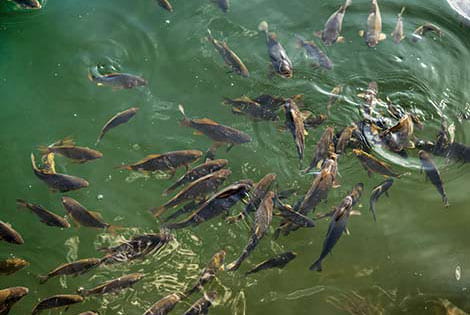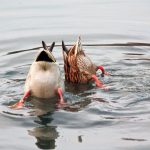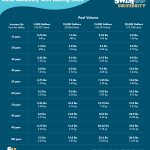Have you ever wondered what fish eat in a pond? Understanding the diet of fish is crucial for their well-being and the overall ecosystem of the pond. Fish play a vital role in maintaining the balance of the aquatic environment, and their diet directly impacts their health and growth. Let’s dive into the fascinating world of what fish eat in a pond.
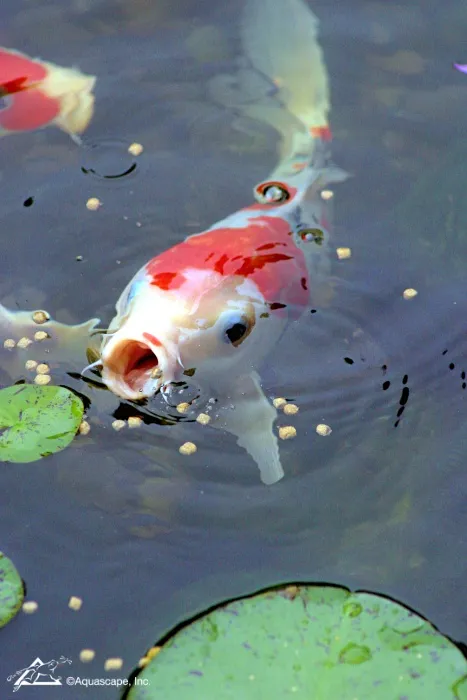
Credit: www.aquascapeinc.com
Types of Fish in a Pond
Before we delve into their diet, it’s essential to understand the various types of fish that inhabit ponds. Common fish species found in ponds include:
| Fish Species | Common Diet |
|---|---|
| 1. Goldfish | Algae, aquatic plants, small insects |
| 2. Koi | Algae, insects, aquatic plants |
| 3. Catfish | Small fish, insects, algae |
| 4. Tilapia | Algae, aquatic plants, small insects |
Primary Diet of Fish in a Pond
The diet of fish in a pond can vary depending on the species, but there are some common elements that make up their primary diet:
- 1. Algae: Algae are a staple food source for many pond fish species. They provide essential nutrients and are readily available in most pond environments.
- 2. Insects: Fish in ponds often feed on insects such as mosquitoes, flies, and beetles. These insects are rich in protein and are a vital part of their diet.
- 3. Aquatic Plants: Fish like to nibble on aquatic plants such as duckweed, water lilies, and hornwort. These plants offer a source of fiber and nutrients.
- 4. Small Fish: Predatory fish species like catfish may feed on smaller fish in the pond. This helps control the population and maintain a balance in the ecosystem.
Supplemental Feeding
While fish in a pond can find food naturally, supplemental feeding is often necessary to ensure they receive adequate nutrition, especially in heavily stocked ponds. Common supplemental fish foods include:
- 1. Fish Pellets: Commercial fish pellets are a convenient and balanced option for feeding pond fish. They come in various sizes and are formulated to meet the nutritional needs of different fish species.
- 2. Worms: Live or freeze-dried worms are a popular treat for pond fish. They are high in protein and are eagerly consumed by many fish species.
- 3. Shrimp: Small shrimp or shrimp pellets are another excellent source of protein for pond fish. They can be a nutritious addition to their diet.
Factors Affecting Fish Diet
Several factors can influence the diet of fish in a pond:
- 1. Water Temperature: Fish metabolism and feeding habits can be affected by water temperature. In colder temperatures, fish may eat less.
- 2. Seasonal Changes: During different seasons, the availability of natural food sources may vary, impacting the diet of pond fish.
- 3. Fish Species: Different fish species have specific dietary requirements, so their diet will vary based on their species.
- 4. Pond Size and Stocking Density: The size of the pond and the number of fish in it can affect food availability and competition for resources.
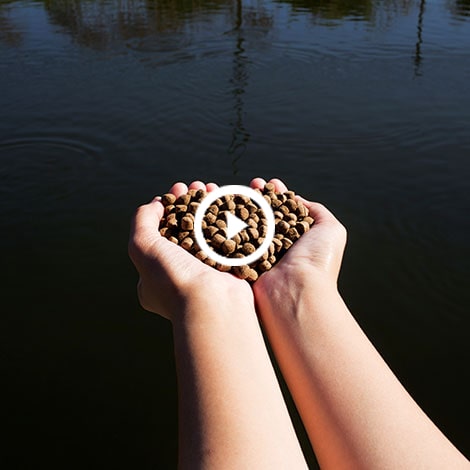
Credit: www.thepondguy.com
Importance of a Balanced Diet
Providing fish with a balanced diet is essential for their health, growth, and overall well-being. A diet that lacks essential nutrients can lead to stunted growth, weakened immune systems, and other health issues. By ensuring that fish have access to a variety of natural and supplemental food sources, pond owners can help maintain a healthy pond ecosystem.
In Conclusion
Understanding what fish eat in a pond is crucial for maintaining a thriving aquatic environment. By providing a diverse and balanced diet that includes natural food sources and supplemental feeding, pond owners can ensure the health and well-being of their fish. Whether they are enjoying algae, insects, or commercial fish pellets, the diet of fish in a pond plays a significant role in their growth and vitality.


